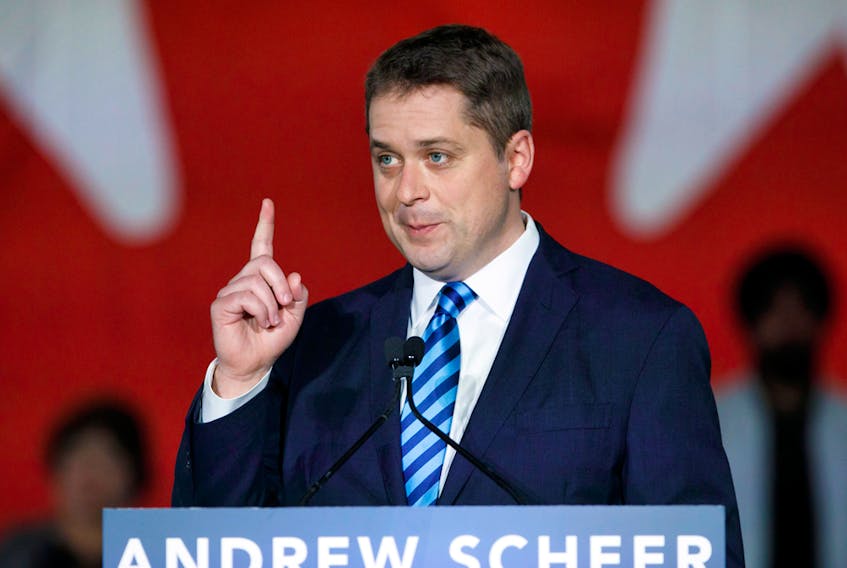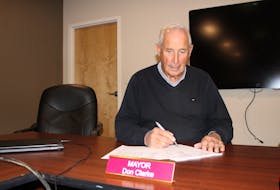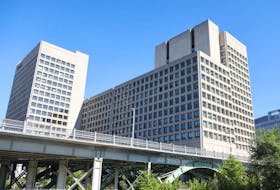OTTAWA — Conservative Party Leader Andrew Scheer is vowing that as prime minister he would scrap the clean fuel standard, one of the Liberals’ major environmental policies that to date has received little attention.
In a letter sent to Prime Minister Justin Trudeau on Monday, Scheer referred to the clean fuel standard as a “secret fuel tax,” claiming it will further increase the cost of gasoline on top of the existing federal carbon tax.
“It is … an unprecedented tax that will apply to all fuel sources, including the fuel used for manufacturing and home heating, which will make Canadian businesses less competitive and gas more expensive,” Scheer wrote.
The letter follows the publication of new details about the clean fuel standard in a proposed regulatory approach released by the government on June 28. The measure, which will require the use of cleaner fuels in transportation, industry and buildings, is one of the largest elements of Canada’s climate change plan, to be applied to liquid, solid and gaseous fuels. It’s expected to reduce greenhouse-gas emissions by 30 megatonnes a year by 2030, a substantial contribution to Canada’s efforts to reach its targets under the Paris Agreement.
In the Conservatives’ environment plan, released last month, the party promised to “increase the availability and use of renewable fuels and to decrease the carbon intensity of Canada’s fuel mix,” but didn’t commit to any hard targets. In his letter, Scheer said he would nix the fuel standard along with the federal carbon tax.
In a statement to the National Post, a spokesperson for Environment Minister Catherine McKenna said the clean fuel standard “will create opportunities across our economy,” including for renewable fuel producers. “The Conservatives want to take us back to the decade of inaction under Stephen Harper,” said Sabrina Kim. “We have a plan that is protecting the environment and growing the economy, and we will continue to deliver for Canadians.”
Still, some industry groups remain concerned about the potential cost of the fuel standard, particularly on top of the existing carbon tax. “We just see this moving very, very quickly,” said Bob Masterson, president of the Chemistry Industry Association of Canada. “This is an incredibly complex instrument. We would rather the details get worked out before this gets introduced.”
In the new document, Environment and Climate Change Canada (ECCC) sets out how the clean fuel standard will grow stricter over time, and outlines measures intended to protect emission-intensive and trade-exposed sectors from threats to competitiveness. The fuel standard is expected to come into force for liquid fuels — largely transportation fuel — in 2022 and for solid and gaseous fuels in 2023. It’s intended to reduce the carbon intensity of liquid fuels — a measure of the amount of carbon dioxide released for each unit of energy produced — by 11 per cent by 2030.
To achieve that, the government aims to require fuel suppliers to cut carbon intensity by a certain amount each year. Companies can manage this by improving the energy efficiency of their own operations, increasing renewable content in their fuel or purchasing credits from electric vehicle manufacturers.
Fuel suppliers will receive credits for the measures they take to reduce their own carbon intensity, as will biofuel producers and electric vehicle manufacturers, which they can then sell to suppliers unable to meet the standard. Bora Plumptre, a senior analyst for the Pembina Institute, said he expects most fuel suppliers won’t be able to reach the carbon intensity standard on their own. “They will for the most part have to buy credits from the other … parties that are supplying low-carbon fuels,” he said. The regulation should therefore serve to make fossil fuels cleaner and to spur renewable fuel production, he said.
It’s not yet clear what the cost of those credits will be, which according to Jade McLean, a policy analyst at the Canada West Foundation, “remains a really big looming question.” California and British Columbia, which have similar policies in place, have imposed price caps around $200 per tonne — substantially higher than the federal carbon tax, which is slated to rise to $50 per tonne in 2022.
McLean said if suppliers are unable to meet the standard by adopting more efficient technology, and are forced to purchase credits, they will likely pass on those costs to their customers where possible.
The government has set out measures to prevent the cost of the clean fuel standard from rising too high. These include a plan to set a maximum price for credits in the event of a shortfall, and to allow companies to offset part of their requirement by paying directly into a fund that invests in greenhouse-gas emissions reductions.
“We know we need to get this right, and that is why are working with industry to design an approach that gives companies flexibility to make the investments that work for them, which keeps costs down,” Kim said.
Still, Masterson said he’s “not satisfied that (the clean fuel standard) is on track to maintain competitiveness of an industry like ours.” He said the association’s members in the petrochemical industry are investing $14 billion in expansions in Canada, but are concerned that the cost of natural gas used to make plastics could double by 2030 under the clean fuel standard. They have “absolutely no ability” to limit their exposure to rising costs, he said.
In contrast, the fuel standard is expected to be a boon to the domestic biofuels industry, and Plumptre said he’s pleased the government has taken steps to ensure that credits won’t go to international biofuels produced through large-scale deforestation. Growing demand for clean fuel has led to the destruction of tropical forests to make way for biofuels, he said, pointing to the production of palm oil in Indonesia as one example. In its new regulatory approach, ECCC says credits won’t be issued for such feedstocks.
With the possible exception of the federal carbon tax, Plumptre said, the clean fuel standard is “the single largest and most consequential element of Canada’s climate plan.” Canada has committed to reduce its greenhouse-gas emissions to 30 per cent below 2005 levels by 2030 under the Paris Agreement, which would require cutting annual emissions by just over 200 megatonnes from 2017 levels. The fuel standard is expected to account for about 15 per cent of that reduction. Ottawa estimates that carbon pricing across Canada will cut emissions by 50 to 60 megatonnes in 2022.
ECCC was expected to deliver draft regulations for the liquid fuels portion of the clean fuel standard this spring, but is now saying those will be delayed until early 2020, after the fall federal election.
• Email: [email protected] | Twitter: MauraForrest
Copyright Postmedia Network Inc., 2019









